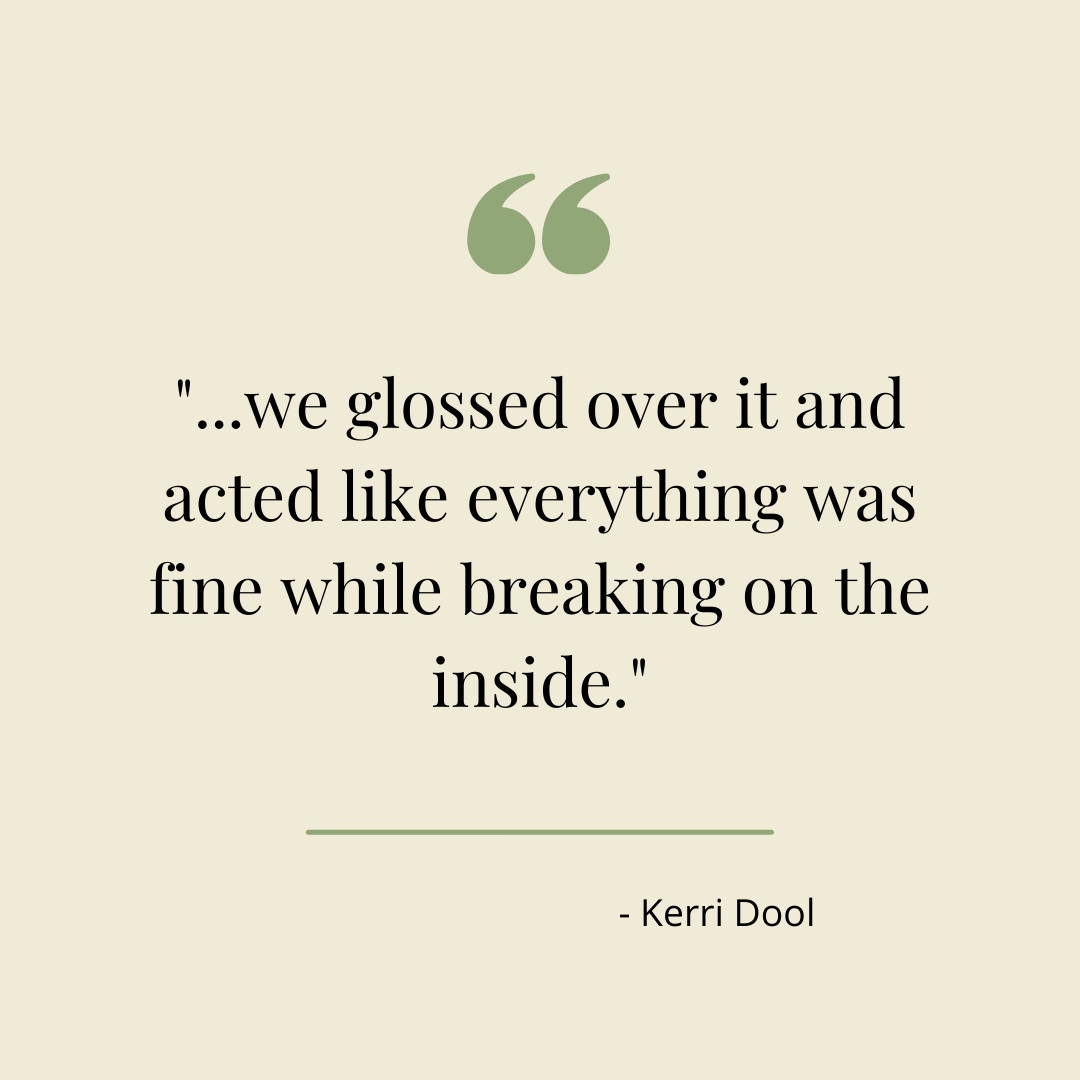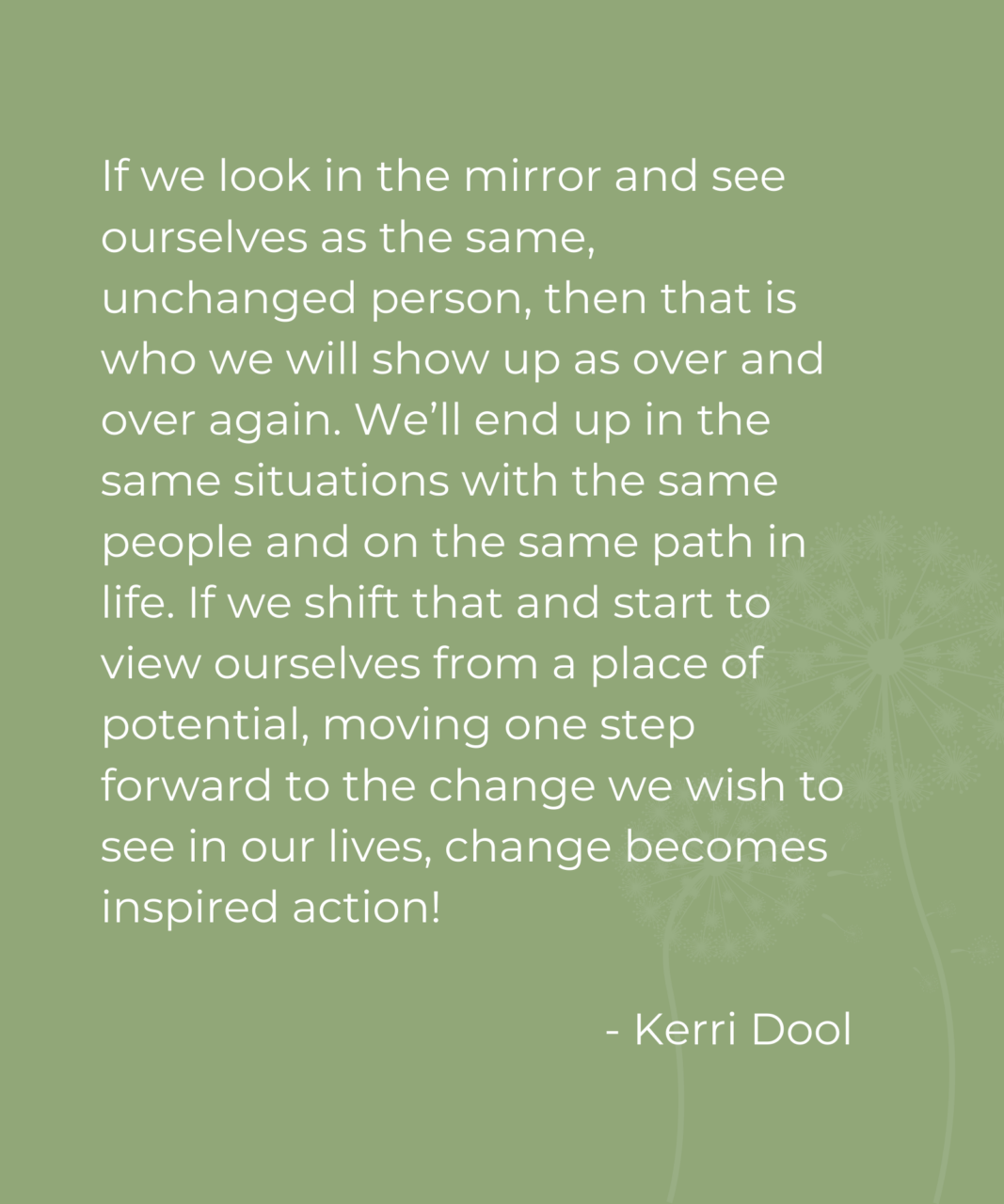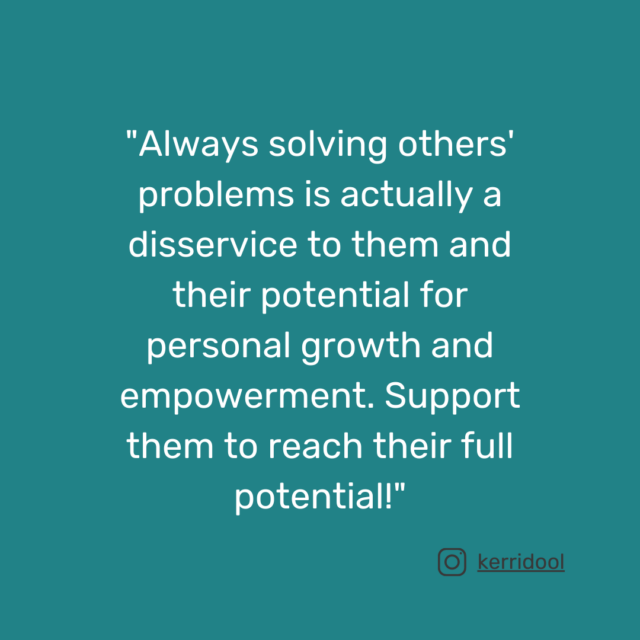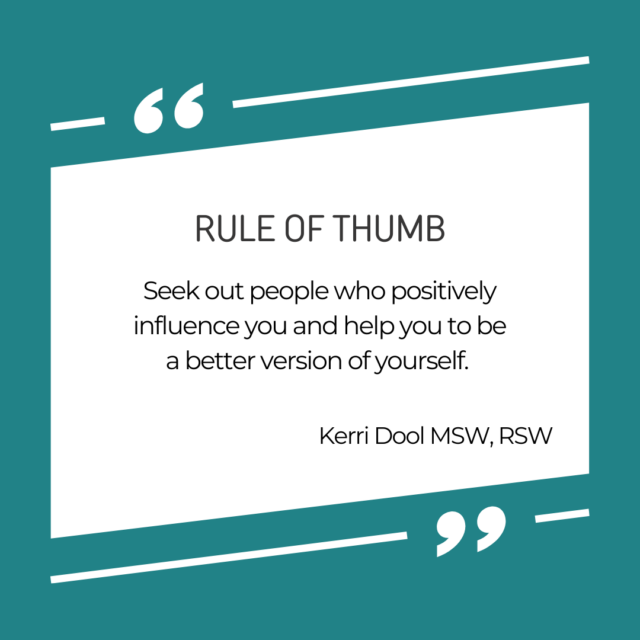
What does it mean to really remove our masks?
Is our display of competence really just a carefully orchestrated act that we play out to pull off the many “roles” we showcase to the world?
At a time when there is so much division around the masks that we’re asked to wear to protect ourselves, we need to start talking about the invisible “masks” that we put on to protect ourselves emotionally every day.
Most of us have been in a situation where we felt we had to “fake it to make it.” I’m talking about those times when we knew we were definitely in over our head and there was no turning back.
I’m talking about those times when we weren’t feeling quite ourselves and something MAJOR happened in our lives (like a breakup or losing a job), and yet, we glossed over it and acted like everything was fine while breaking on the inside.
Sometimes our family even reinforces this illusion to the outside world, telling people we “are great” when others ask about us, further solidifying the concept that our image, our representation of self, is a carefully constructed and regulated identity.
It might have been a big job promotion, becoming a parent and bringing your baby home for the first time or even starting a serious relationship with someone (where you felt ill-equipped). It’s that pivotal moment when we look ourselves in the eye and say: ’yep, I have no freaking idea what I’m doing, and wow, I hope this works out.’ Instead of honouring this feeling and making necessary changes, we hide behind the version of ourselves that we think the world wants, and the act continues.
At any given moment in this uncertain and highly uncomfortable role, the mask may slip, and it can become glaringly apparent that we are not who we lead people to believe we are or who we even want to accept as our authentic selves.

When we drop the “mask” either voluntarily or because we just can’t keep up the charade any longer, what’s revealed is often a more tender and vulnerable version of ourselves.
Otherwise known as imposter syndrome, the emotional masks that we put on to show up every day and perform for the world have major consequences on our personal and professional reality. While we can say that everyone struggles with this, research shows that Men, especially, struggle with the phenomenon known as Imposter Syndrome (businessindsider.com)
Hi, I’m Kerri Dool, and I’ve been a social worker for over seventeen years now, offering counselling services and running a private practice. Over the last two years, we have seen a significant increase in the number of men who reach out to us. Men who are tired of feeling overwhelmed and pretending that everything is fine. Men who finally have decided to put their emotional health first. To deal with the past to live a full life. Men who for so long have pretended they are o.k., even when they are struggling silently on the inside.
Sound familiar? If it does, you need to know you’re not alone.
Let’s be real about all of this. What does it look like and feel like to be an imposter in your own body and in your life? I’ve heard from so many men that they are exhausted at the end of the day. Not only are you trying to do what you need to do at work, you often come home and have to put on another alter ego of “parent.” For some, it’s so hard to sit at the dinner table, shut off from the demands of your work life and switch into dad mode. Sometimes, it can just feel so overwhelming that you end up taking a breather away from the family, watching a show downstairs in the basement, only to be accused later by your partner of being uninterested in your kids and not pulling your weight at home. Am I right?
Or maybe you are the “yes man!” You say yes to everyone and everything because the idea of not being liked or having to deal with some kind of conflict that might arise is worse than just agreeing and going along with all the requests. You wear the “yes” mask and again, pretend that it’s all good, when really, you are so spent and stressed about the growing “to do” list, that you can’t even make space for something you might need or want.

This is where I hope to shed some light on the situation.
Fact: most men aren’t calling up their guy friends to share their feelings. It can feel very isolating and lonely going through all of this, and yet, so many men are feeling the very same way. In a 2018 research article (Badawy et al.), men we identified as having more anxiety due to negative feedback and situations where they had to be highly accountable. At first glance we might think that this is relegated to the work environment only, but being a parent and a partner can often result in feedback and accountability that mimics a “job.”
More and more, men are revealing that they feel like imposters in their very own home. Is this what causes them to exit stage left at times and get a new life and a new identity? Could this be the cause of the “mid-life” crisis that we all hear about? I ask these questions because it seems that they are woven together by the common denominator of impersonating a version of self that is inauthentic.
I think it’s less about being uninterested in parenting or running from responsibility or not wanting to have the meaningful conversations and more about how being emotional might look to other guys or how it feels to be judged by partners, friends, family etc. What amount of being vulnerable would be required and how unsafe does that feel?
What can you do to feel a little more like yourself and less like an Imposter in your own life?
Accepting all parts of ourselves: Start being a little kinder to yourself and all of your feelings that come up. When we do this, it becomes less likely that we will feel the need to pretend or reject who we are, how we feel and what we are experiencing in situations.
Talking about it: Getting angry is often a go to response when enough is enough. It’s the “safer” emotion for men to show the world. Under anger often lies sadness, fear, grief, shame. It’s important to talk about what’s bothering us to dig a little deeper and explore the root of the issue. We can better diffuse the emotion and find solutions for situations troubling us. It takes practice to talk about our feelings, so little by little, this can become something that we learn to do. A therapist can really help with this.
We are what we think: We have over 70,000 thoughts per day, and many of them are far from complimentary. Starting to be aware of what we are saying to ourselves each day is the first step. The next step is to start changing the story, focusing on our strengths instead of our limitations and encouraging ourselves.
Not comparing or competing: Part of becoming more authentic and less of an imposter in our lives is being true to who we are. It’s easy to look at other guys and compare or compete for the life that they have. Instead, look at everything you’ve created in your world and be proud of that. What’s something that makes you unique and cool as a human being?
This blog is a shout out to all the men who have felt like they had to pretend to be someone they aren’t at some point. It’s a message to you, to remember who you are, to start being true to yourself and to know that it’s o.k. because the authentic version of you, is the one that will win at the “game of life” every day of the week.
Warmest Wishes,


Our lives have significantly changed in these past two years, and we continue to be impacted by world events and circumstances beyond our control.
Through the felt pandemic experiences, we have also been forever changed collectively and individually. Some have realized they want more in life. Others want less. Some have decided to leave partners, jobs, get married or start a business. Some have realized that they want to be more involved with their children’s lives and less committed to careers. None of this is a negative thing, and in fact, the impetus to these changes is partly due to the forced experiences that we have had.
Consistency and predictability can be our friends in life and, over time, our greatest foe. There are two sides to this coin. Embracing change, even when we haven’t voluntarily pushed “go” on that button, can often be the best way to find the opportunity that awaits.
So why do we resist the prospect of change so fiercely? The answer can be summed up in one word: Fear.
What lies on the other side of change is the unknown and what we might lose through the process. For many, this is simply too great a price to pay. The brain is wired to solve perceived problems, and change can make us think a possible problem exists. It’s natural for our mind to want to go back to old ways of doing things because this is the pattern it recognizes, and there isn’t any discomfort associated with that state of being.
In a way, change is intertwined with our identity. In the process of making changes to our daily habits, our emotional responses or our relationships, it may feel like we are being asked to steal someone else’s identity.
Impersonating a version of ourselves that we have no clue how to be or sustain may feel highly uncomfortable. In turn, we may stall the process of making any actual changes to who we want to become because of what we would be required to admit to ourselves and what we need to do to succeed with this.

If something external to us, such as food or an unhealthy partnership, has been our comfort and our solace during times of stress, it can feel completely overwhelming to give that up or even consider what life would be like without it.
Sometimes we even engage in self-sabotage when attempting to implement a positive change in our lives because we fear failure. By preventing any progress, we avoid the disappointments of not fully realizing our goals. I’ve personally witnessed this with students who don’t study for exams because they are then able to say that ‘they didn’t even study,” so the grades aren’t a true reflection of their intelligence or abilities. They don’t have to be accountable because they never tried in the first place.
This boils down to competence and our need to believe in our abilities. How do we do that? Well, it’s a process, and it involves “putting ourselves out there” in situations that we usually wouldn’t try. Stepping out of our comfort zone allows us to start seeing that we can handle new experiences with greater self-confidence. Part of this starts with our self-talk. If we tell ourselves that we can do something repeatedly, even visualizing being successful at doing it, there is a greater chance we will try that new thing and feel good while we do it.
We don’t always have a clear vision of our future or who we truly want to be, which can sometimes obscure the path of change. It’s imperative to be clear about why we want to make changes in our lives. It’s like getting in your car without a destination. Sometimes that can be fun, but with the price of gas and the wear and tear to your car, it’s not sustainable over time. That’s what making changes to yourself or your life can feel like on your psyche if you aren’t sure what you’re hoping to achieve with a personal change.
Ask yourself: What’s one thing that needs to change in my life and why?

The good news is that all of this “change” directly relates to time. We aren’t transforming ourselves and the life we choose to live within a week or a month; it’s a process that offers long-term results when smaller, actionable steps are taken daily and with support.
We need to give ourselves more credit for trying, and acknowledge our strengths, showing ourselves acceptance for being who we are in this present moment. Although we want to make some changes, be it to our weight, self-confidence, jobs, or relationships, we need to be aware that it’s an evolution of self. That is something that continues throughout our lifetime.
If we look in the mirror and see ourselves as the same, unchanged person, then that is who we will show up as over and over again. We’ll end up in the same situations with the same people and on the same path in life. If we shift that and start to view ourselves from a place of potential, moving one step forward to the change we wish to see in our lives, change becomes inspired action!
Ask yourself: What’s one small thing that I can start doing differently to change a desired area of my life? How am I going to hold myself accountable for this each day?
The opposite is true as well. Sometimes life throws us curveballs, and life changes very suddenly through circumstances beyond our control. In this regard, change is directly correlated with time. Perhaps a pandemic finds us working from home, or we experience the loss of a loved one, or our financial security is jeopardized.
In those moments when we feel incredibly anxious by all of the uncertainly that change is bringing forward, we can rely on some guiding principles to establish stability within ourselves:
Change can be an opportunity to step into becoming the version of ourselves that’s fulfilling, even when the circumstances surrounding the changes are not ideal. Moving out of our comfort zone with these fundamental principles when we find ourselves in the winds of change can take us on a momentous ride of possibility.
Warmest Wishes,


“Commitment” is a word that takes on many connotations.
Many of us are told from an early age that if we put time and energy into something, if we show up consistently, we will reap the rewards of our efforts, and everything will “work out.” For example, if we study diligently, we will get into the school of our dreams and have the career, family, and the life we always desired. If only it were that simple!
This perceived assurance of an outcome, one that is predicated on our level of commitment, motivates us to continue on a chosen path. The result of our efforts, be it positive or negative, often shapes our self-identity (i.e. I am successful in my career because I was hired into a position that I applied for). What happens to our self-identity when we aren’t selected for that important job, or that person doesn’t want to date or marry us, and the time, energy and effort don’t reap the intended outcome? Who are we then?
Sometimes, commitment is undeniably an exercise in feeling overwhelmed, overextended and quite honestly, frightened by the underlying expectation of what will be required of us. Joining that team, becoming a parent, signing up for the PTA, or even getting married, feels like an exercise in being overwhelmed, engulfed and signing our autonomy away.
Some of us willingly run toward the concept of commitment as a means of shaping our self-identity, while others feel they are being chased by it and need to protect every last ounce of freedom and self-expression from the shackles of it.

When our self-identity becomes so closely tied to the external world (and it often is), we may start to lose that sense of who we are through the natural experience of life’s disappointments and ongoing challenges.
I decided to write about commitment as February is the month society emphasizes relationships. The ones we have, the ones we wish we had, but very rarely, the ones we have with ourselves.
Our relationship with ourselves and the resulting self-concept (a.k.a. our internal identity) is the most important one we will ever have; it is the foundation from which all other relationships are built.
For many of us, we have a rough idea of who we are by the time we reach adulthood. Our self-concept is often the bi-product of the environment we grew up in, the feedback we received from others, in combination with our thoughts, beliefs and actions. Our sense of self and how we feel about who we are, start to shape our relationship with ourselves.
Let’s say a kid grew up in a home where athleticism was valued (I chose this because I think it will resonate for many of you both as parents and as athletes).
In addition to the team practices, parents may also expect their kids to practice their sport in the yard at night and give a lot of extra time to their skill development. The kids are often praised and applauded for their performance, and they begin to associate their value on an intrinsic level with their ability and level of success. Participating in sports can be a positive experience for many kids and result in learning teamwork, discipline and commitment to something outside of themselves. This association can go off course for some kids when they are disappointed in not being selected for the next team. Unbeknownst to parents, kids may begin to establish a belief that “they aren’t good enough.”

Please Note: Multiple protective factors can mitigate the sense of not feeling good enough. These include loving friends and family, talking openly about feelings of disappointment and having strengths/abilities in other areas of life. It’s a balance between their identity as an athlete and the relationships the child holds with all other aspects of self.
Fast forward with this belief that “I’m not good enough,” however true or untrue, and it can become quite solidified within the adult self-concept. This belief can shape the lens from which the person views their whole world, feeling less than and unconsciously creating scenarios in which they ultimately prove this to themselves time and time again.
It can result in them not seeking out situations where they would compete with someone, or their self-esteem would be further compromised. They may play it safe in life, not pushing themselves beyond a particular comfort zone because it elicits those old feelings of not being good enough. This apprehension can transcend into feelings of incompetencies as a parent, a spouse, or an employee. Sometimes these roles are entirely avoided because of their self-doubt. Their level of commitment to themselves can be eroded. We may see that they don’t make themselves a priority. In addition, their health, wealth and sense of peace are generally compromised.
More often than not, they may begin to escape these negative feelings with other compensatory behaviours (i.e. overindulgence, “fixing” other people’s lives, avoidance of situations, creating many distractions from their own needs). If this sounds familiar in any way, rest assured there are some helpful ways that we can start to transform our self-concept and our relationship to ourselves into one that is more supportive and nurturing.
When someone develops a self-concept of “not being good enough,” for example, part of reversing and redefining it is to become more aware of it. It’s
helpful to start noting times throughout a day, a week, life experiences where this old belief begins to pop up. It might be beneficial to keep a log and review the number of times it has interrupted the flow of your life for a month. This practice is a good way to gauge how intrusive a belief is and prioritize which ones require more attention based on how disruptive they are to how we feel and act.

It’s helpful to note the story we are telling ourselves or the type of “roommate” we are sharing space within our mind. You know, the one who may not always be accurate or speak with kindness. In the case of “not being good enough,” changing the story to one of feeling self-efficacy and competency is crucial.
We can start by noting our strengths. For example, I’m a kind person, and I care deeply about people. When we begin focusing on our competencies, we naturally feel better. We start to feel more love and appreciation for ourselves. We start changing our story and seeing our self-worth.
Write out what you do like about yourself and pair it with the feelings that come up for each of these identified strengths. It will help us identify the contrast to the old belief and the negative feelings that are attached.
It’s important to take stock of the things that have hurt us and our self-concept along life’s journey. One of the most powerful and cathartic ways to change our inner narrative is to embody and be the very thing that we were missing in our past. Reminding ourselves that we are loved when we feel lonely or are here for ourselves when we are not feeling good enough are a few examples of this.
Doing something as simple as sitting with ourselves in these painful moments and saying “I’m here for you” can help heal old wounds and free us from those former stories. Finding unconditional love for ourselves is the path to feeling complete. We tend to have relationships that reflect our inner state back to us.
If we told a friend that we would meet them for a walk and then we kept cancelling on them, what might happen? After a while, they would probably stop asking us to go for a walk because they would assume we didn’t want to go. We most likely wouldn’t treat a friend this way, so it also stands to reason that we can’t treat ourselves this way either.
Making time in our schedules for things that are important to us and saying no to other requests to honour this time that we so deserve and need to grow in our relationship with ourselves is imperative.
Leaving some relationships behind, some vocations or interests that no longer fit with who we are becoming and expanding to new experiences that promote feelings of contentment and fulfillment are essential to this process.
Of Yourself: Part of starting to show up for ourselves consistently requires us to forgive ourselves for the times when we haven’t. We’ve all made mistakes. We’ve all put ourselves on the back burner. Saying “I’m sorry” to ourselves in a letter, out loud, or in a moment of personal quiet can help us move on from the past and start taking steps towards a commitment to ourselves and the brighter future we desire.
Of Others: Letting go of past hurts and resentments related to situations that have taken place with others sets us free. We don’t need to agree with the behaviour or what was done, but by looking at this from a compassionate and forgiving perspective, we allow ourselves to move forward from what took place. I would also say that we learn from these situations what we will tolerate from others, and it’s really up to us to set healthy boundaries for ourselves in future.
Not everyone will be happy or supportive about changes that we make as our self-concept shifts, and we make a more significant commitment to ourselves and our wants and wishes. Sometimes the changes we make, the way we show up in the world around us, what we are willing to accept from others, how that impacts them, and how it changes our day-to-day life can be uncomfortable for those around us.
Their reaction to your change has nothing to do with our lives, choices, or happiness. It’s a reflection of their own “stuff” and the feelings they are experiencing. We cannot put our decision to make important life changes that align with our true self-concept; that is, who we are, on hold because it will upset the status quo. We have to do what’s best for us!
To pretend we are someone we aren’t and live an unauthentic life that is discordant from our true self-concept and a truly established relationship with ourselves is to live in the absence of love for ourselves.
When we show up from a place of fully knowing and accepting ourselves, we can better commit to ourselves and act with love and kindness in our external world. There is a quote that I heard and would like to share as it further captures all of this: “When we love ourselves, we also teach others how to love us.”
Warmly,


Picture it: Your Zoom presentation for work is scheduled to start in ten minutes, your eight-year-old exclaims that their online schooling just crashed from your living room, your mom is calling to ask you for a ride to her next doctor’s appointment on the cell phone that your other child is holding hostage and the dog just peed at the door because nobody else is letting him out.
You are being, doing, and embodying a version of yourself that feels humanly impossible to maintain, and yet, the same confirmatory “yes” to all requests emerges from your lips at each passing moment of an increasingly exhausting day.
If this description resonates with you, perhaps you, like many of us, are a people pleaser. You know, the one who attempts to make life a little easier for others, the one who can’t quite say no even when you are feeling completely overwhelmed by life.
We all like to be validated, accepted and needed. Those are facets of most relationships. It feels good to help someone in need. It’s also a great feeling when we find that perfect gift for a child, friend, or family member who will really appreciate it. That act of giving or helping with sincerity because we want to show someone we care for them and that they matter to us is the basis from which healthy relationships develop and are maintained.
This can go off course when we find ourselves doing things for others and accepting more responsibility for other peoples’ lives because we need their approval and we’re worried about the aftermath of saying “no.” We may face criticism, they may not like us as much, we may not get that promotion at work, or we might view ourselves as a “bad” person. These are the narratives we tell ourselves when we engage in people-pleasing and it keeps the fears that fuel our behaviour alive. It erodes our sense of self.
In the moment of giving from a place of pleasing others, our egos are fed and we feel needed, but we deplete our emotional currency. This is short-lived as we can start to feel manipulated and used, instead of valued and embraced in a reciprocal exchange.
We leave very little room for our wants or our needs. What can inadvertently arise is us growing tired, irritable and resentful of our obligations, viewing them as a chore. This can fracture relationships and the way we show up in them.

We may also be enabling someone else’s unhealthy behaviours or poor choices If we are always there to mitigate the consequences of the life they are intentionally leading (i.e they mismanaged their money and need to borrow from you, they need a ride, they need a place to stay, they need you to tell them they are an amazing person). This, by the way, is an empty cup that never gets filled and they will always need you to keep pouring into it.
It’s actually more loving to hold people accountable and to encourage their capabilities than it is to rescue them. It enhances their self-esteem, their competency and creates a healthier relationship dynamic.
People don’t like to feel helpless or incompetent. It creates a power-differential (with the “helper” being the perceived authority) in the relationship. It is actually a disservice to them and their potential for personal growth and empowerment. Support them to reach their full potential!
For Parents: Not doing or buying everything they ask, is an act of love. They will never find someone that says “yes” to all of their requests in the real world. We help children to become more emotionally intelligent by experiencing disappointment early on in life when we are there to support them with those emotions. This creates resilience in them!
Part of giving and being there for others is predicated on setting healthy boundaries for ourselves and with them.
I’ve listed some questions below that will help you identify the true source of your giving time, resources and energy to requests that may come your way.
I’ve also included a brief script that you can use if you would like to decline from something, but it feels uncomfortable and you just aren’t sure how to politely express it.
Do I want to do this or do I feel I have to/should do this?
Do I want them to like me?
What does this say about me if I say “no?”
What does this say about me if I say “yes?”
How will I feel if I don’t have to say “yes” to this?
I can imagine how you would feel like my help could make things easier with this situation. I really value you and I want you to know that I care. I have to make space right now for some things that I need to focus on and I wouldn’t be able to (insert the request they are asking you for). What are some other options for you in this situation (problem-solve with them)?
When we become more assured of who we are (self-concept) and we can commit to ourselves in a healthy way, the need to people please becomes less relevant to our success and approval in life.
My next blog will delve more deeply into this concept of commitment to self and how that shapes our relationships with ourselves and others!
Warmest Wishes,

It doesn’t matter who you are, how you grew up, how much money you have or don’t have, we have all compared ourselves to someone or something. It’s human nature.
It is especially difficult during the holiday season not to look at other families and what they are sharing on social media. We may feel a little inept in our own lives or wish that we had something more comparable to what they are showcasing. Sometimes we even compare our kids, our partners, our parents to others and wish that they could just be more like those people. If they were, our lives would be so much better…and no, that’s probably not the case by the way.
The truth is, these social media posts and representations are the best, edited versions of what actually goes on in a household. And yet…we accept it as truth and compare, compare, compare.
It can leave us feeling a range of emotions from rejection, sadness, envy to self-deprecation.
It isn’t just a result of social media influences though, it’s a tendency we must recognize within ourselves. It can happen when we are in the company of friends, colleagues or even when we are walking down the street looking at strangers (i.e. how much more attractive, happier, wealthier, you fill in the blank …) that person is.

Comparison can be a form of self-torture that nobody benefits from and is a sure recipe to lower someone’s self-esteem in an instant.
Partly, we engage in comparison when we feel something is missing within ourselves, either consciously or subconsciously. It’s usually the feeling (i.e. happiness, love, acceptance) and not “the thing” that we are seeking.

Partly, we engage in comparison when we feel something is missing within ourselves, either consciously or subconsciously. It’s usually the feeling (i.e. happiness, love, acceptance) and not “the thing” that we are seeking.
It’s that old adage of “I’ll be happy when I can take trips like so and so” or “if I could only find a partner, I’d finally feel fully loved” or “If I run a successful business, then people will respect and like me.” The quest for approval from others is elusive though. It’s like chasing a rainbow and it can sabotage our own happiness in what we actually have.
We may compare ourselves to people who are struggling because we relate to them. We may tell ourselves that we are not as “bad off” as that person, rationalizing our own situation and need for change, or we may seek out connection with them because we feel they will understand us and not expect anything more from us. This can hinder us.
Rule of thumb: Seek out people who positively influence you and help you to be a better version of yourself.
Now that we understand the effect comparison can have on our self-esteem and general outlook on life, let’s look at how we can manage it.
Core beliefs: What we fully believe about ourselves shapes how we think and how we act on a daily basis. If we believe that we are unworthy of success or we can’t emotionally handle a relationship, for example, we then act in a way that self-fulfills this belief and often sabotages good things in our lives.
We can change our core beliefs by:
This takes some practice and I’d highly recommend working with a counsellor on this one.
Self-Acceptance: When we appreciate ourselves, we look at how far we have come and all of the lessons and growth that have occurred. This feels much more encouraging and validating. Staying in our own lane requires us to look within ourselves and use our lives as the benchmark for our own contentment.
Self-Compassion: We can often be really critical of ourselves, more so than anyone else in our lives. It’s important to be in tune with how we speak to ourselves.
Are we making encouraging statements or kind expressions towards self or does it feel harsh and self-rejecting?
The most important relationship that we will ever have is the one that we first experience with ourselves. We cannot give love to others, until we truly value, appreciate, and reflect that love onto ourselves. This is a tricky one and our self-compassion program at our office can help with this.
Self-Actualization: When we try to live a life according to someone else’s ideals or values, it is simply unfulfilling.
Now, repeat after me: This is my life and I get to determine the path I would like to follow, the achievements that are important to me, and the experiences I wish to have. My life is self-determined.
Perhaps this will cause you to reflect a little more on what it is that is important to you. It changes throughout our life and that’s completely o.k. and expected.
Ask yourself the following:
Do I like the life I’ve created for myself?
Is there anything I’d like to change (if so, make a list and note some small steps you can start taking toward these changes)?
We may take a detour in life that is wonderfully enchanting and filled with delights.
Remember, to be uniquely you, is to be unequivocally authentic and amazing. Nobody compares to that!
Warmest Wishes,

We have many exciting new things happening at K Dool Wellness. In addition to our new website, where we plan to post relevant, valuable and educational content, we’ve also invested in an online booking and patient management application.
We want to re-invent patient care in our industry and it all starts with our people.
Thank you very much for visiting.
Start with one of our Wellness Team Members!
Copyright © 2021 K Dool Social Work Professional Corporation
Request a call for more information on our services